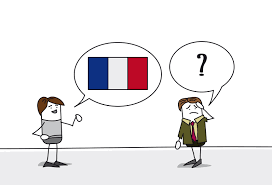Foreign language translations – what are the subtleties?
 In the age of globalisation, translation is of particular importance. This branch of linguistic activity is valued at 33 billion dollars worldwide. It is not only technical translation, but also other types of translation used in areas such as politics, business and mass culture. The quality of a translation affects the success of a product on the international market, the popularity of a movie or a book. And for translation to be successful and to prevent potential conflicts, it has to be done by experienced translators.
In the age of globalisation, translation is of particular importance. This branch of linguistic activity is valued at 33 billion dollars worldwide. It is not only technical translation, but also other types of translation used in areas such as politics, business and mass culture. The quality of a translation affects the success of a product on the international market, the popularity of a movie or a book. And for translation to be successful and to prevent potential conflicts, it has to be done by experienced translators.
Translation principles
In order to achieve a good result, a translator has to adhere to certain principles:
Accuracy. It is necessary to convey to the reader all the main points of a scientific article, provisions of a manual or a law, thoughts of the author of a work of fiction. In a literary translation there is another task – to accurately convey emotional mood, nuances of statements, the author’s attitude towards the problem.
Conciseness. A translator who works with technical literature, must write clearly and concisely, not to lose the essence.
Clarity. Conciseness of style should not impede the clarity of the presentation, even if the text is a fiction. You should avoid turns which may be regarded as ambiguous, unless the author has planned to use it as a play on words or another stylistic device.
Literality. The finished text must fully comply with the rules of the literary language into which it is translated. Each phrase has to sound natural to a native speaker of that language (which is why resorting to “tracing” is not recommended).
The translators associated with Techtranslate work according to these rules.
Potential complications
Human translators come up against different challenges. Even experienced staff can make mistakes. Languages can vary significantly in their syntactic structure. Therefore, it is not always possible to retain the original structure in the finished text. Sometimes it has to be changed deliberately in order to achieve an accurate presentation of an idea. The order of words in a sentence, parts of speech, etc. may change.
A lot of difficulties are caused by words that are called “false friends” and “false cognates”. In the first case, the words are pronounced the same way in different languages, but have different meanings. False cognates are words that have a similar meaning and sound, but different origins. History has known cases where mistranslations due to “false cognates” have cost millions of dollars – such as compensating a patient who was wrongly treated for lack of correct translation.
How translators develop their skills
Our translation company works with qualified interpreters. They work in different fields and are constantly improving their skills. It is important for the translator to follow the current trends in language development. They need to read thematic literature, communicate with their colleagues in professional forums, immerse themselves in the language environment – watch films, listen to the news, etc.
In order for the finished technical translation to meet the requirements and be accurate, it is necessary to follow the development of the industry and the emergence of new equipment and technologies. Those who work with legal and economic documents need to keep abreast of changes in legislation.







You questions and comments regarding the subtleties of foreign language translation you can leave here. We will be happy to answer them.